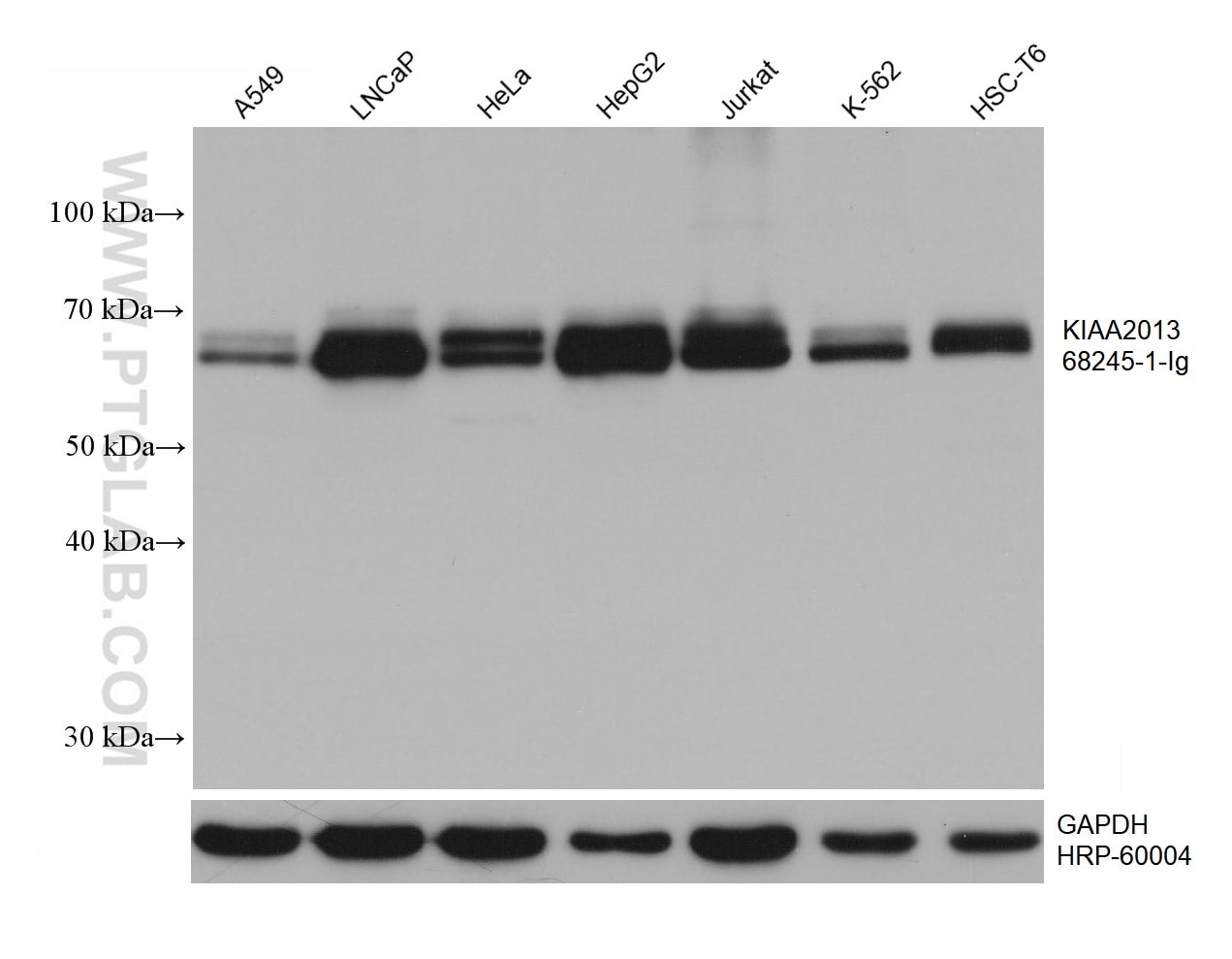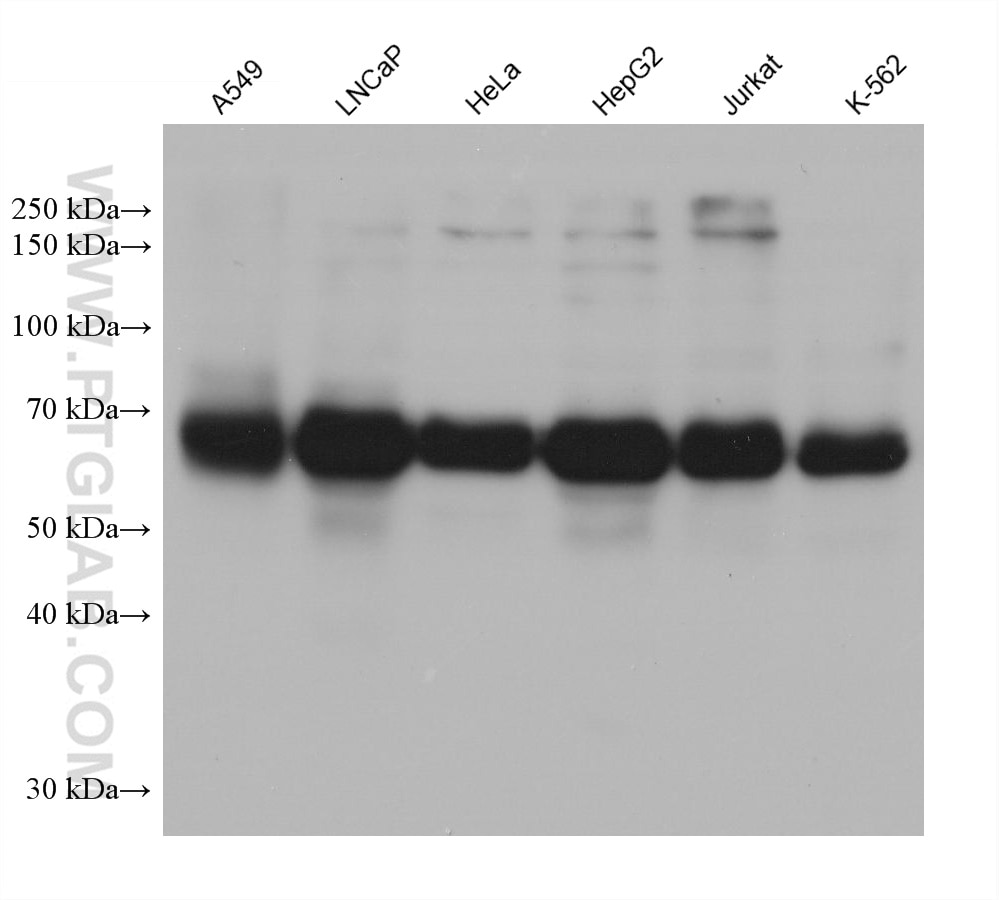KIAA2013 Monoclonal antibody
KIAA2013 Monoclonal Antibody for WB, ELISA
Host / Isotype
Mouse / IgG2b
Reactivity
Human, rat
Applications
WB, ELISA
Conjugate
Unconjugated
CloneNo.
4G6C4
Cat no : 68245-1-Ig
Synonyms
Validation Data Gallery
Tested Applications
| Positive WB detected in | A549 cells, LNCaP cells, HeLa cells, HepG2 cells, Jurkat cells, K-562 cells, HSC-T6 cells |
Recommended dilution
| Application | Dilution |
|---|---|
| Western Blot (WB) | WB : 1:5000-1:50000 |
| Sample-dependent, check data in validation data gallery | |
Product Information
68245-1-Ig targets KIAA2013 in WB, ELISA applications and shows reactivity with Human, rat samples.
| Tested Reactivity | Human, rat |
| Host / Isotype | Mouse / IgG2b |
| Class | Monoclonal |
| Type | Antibody |
| Immunogen | KIAA2013 fusion protein Ag27438 相同性解析による交差性が予測される生物種 |
| Full Name | KIAA2013 |
| Observed molecular weight | 65 kDa |
| GenBank accession number | BC035033 |
| Gene symbol | KIAA2013 |
| Gene ID (NCBI) | 90231 |
| Conjugate | Unconjugated |
| Form | Liquid |
| Purification Method | Protein A purification |
| Storage Buffer | PBS with 0.02% sodium azide and 50% glycerol pH 7.3. |
| Storage Conditions | Store at -20°C. Stable for one year after shipment. Aliquoting is unnecessary for -20oC storage. |
Background Information
KIAA2013, also known as Q8IYS2 or MGC33867, is a single-pass transmembrane protein encoded by the KIAA2013 gene in humans. KIAA2013 has been found to play a role in the Endocannabinoid system. This system is made up of cannabinoid receptors 1 and 2 (CB1 and CB2) as well as the various ligands and enzymes that interact. The protein KIAA2013 has been found to be expressed within CB2 expressing cells. Both cannabinoid receptors are labeled as class A G-Protein Coupled Receptors, and CB2 is highly expressed within the human spleen and leukocytes. CB2, and by extension KIAA2013, are therefore targets of interest for therapeutic studies looking into diseases such as inflammatory bowel disease and rheumatoid arthritis(PMID:31616248 34752341).
Protocols
| Product Specific Protocols | |
|---|---|
| WB protocol for KIAA2013 antibody 68245-1-Ig | Download protocol |
| Standard Protocols | |
|---|---|
| Click here to view our Standard Protocols |



